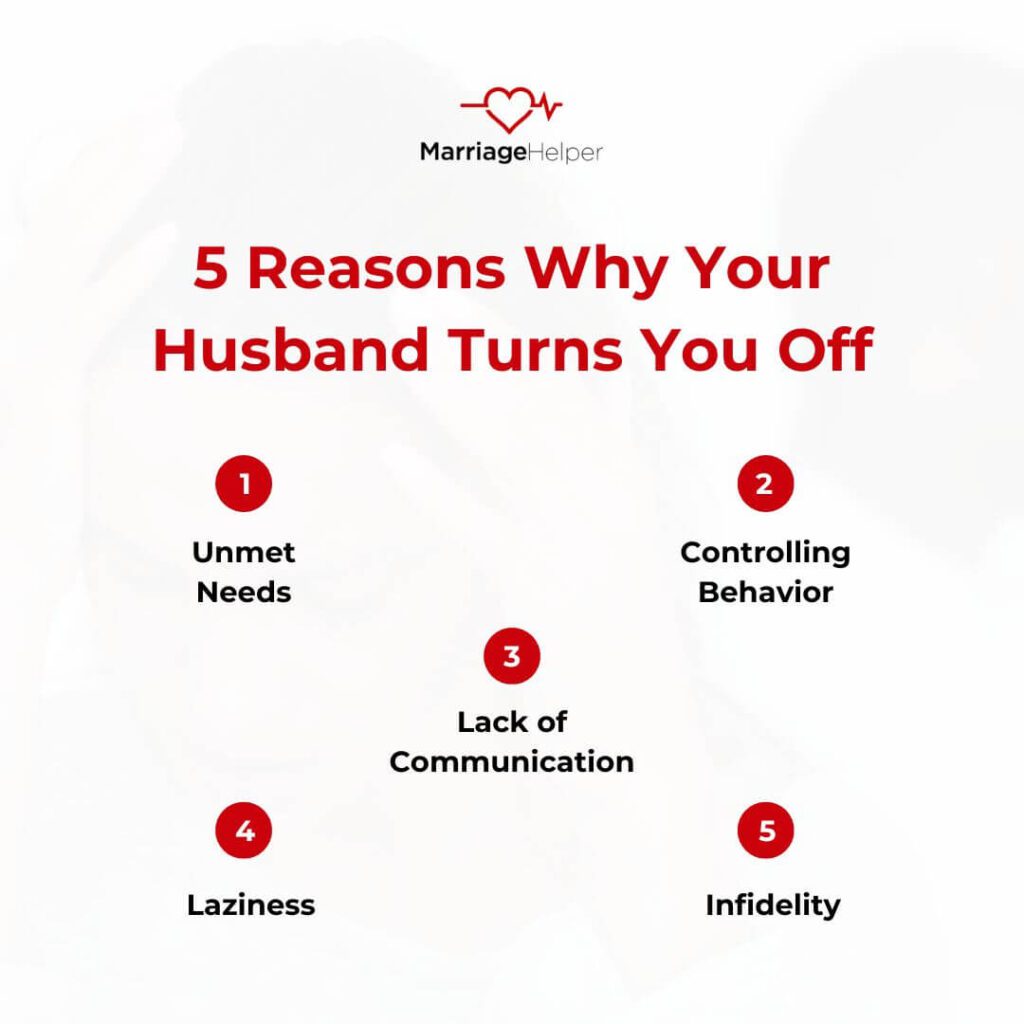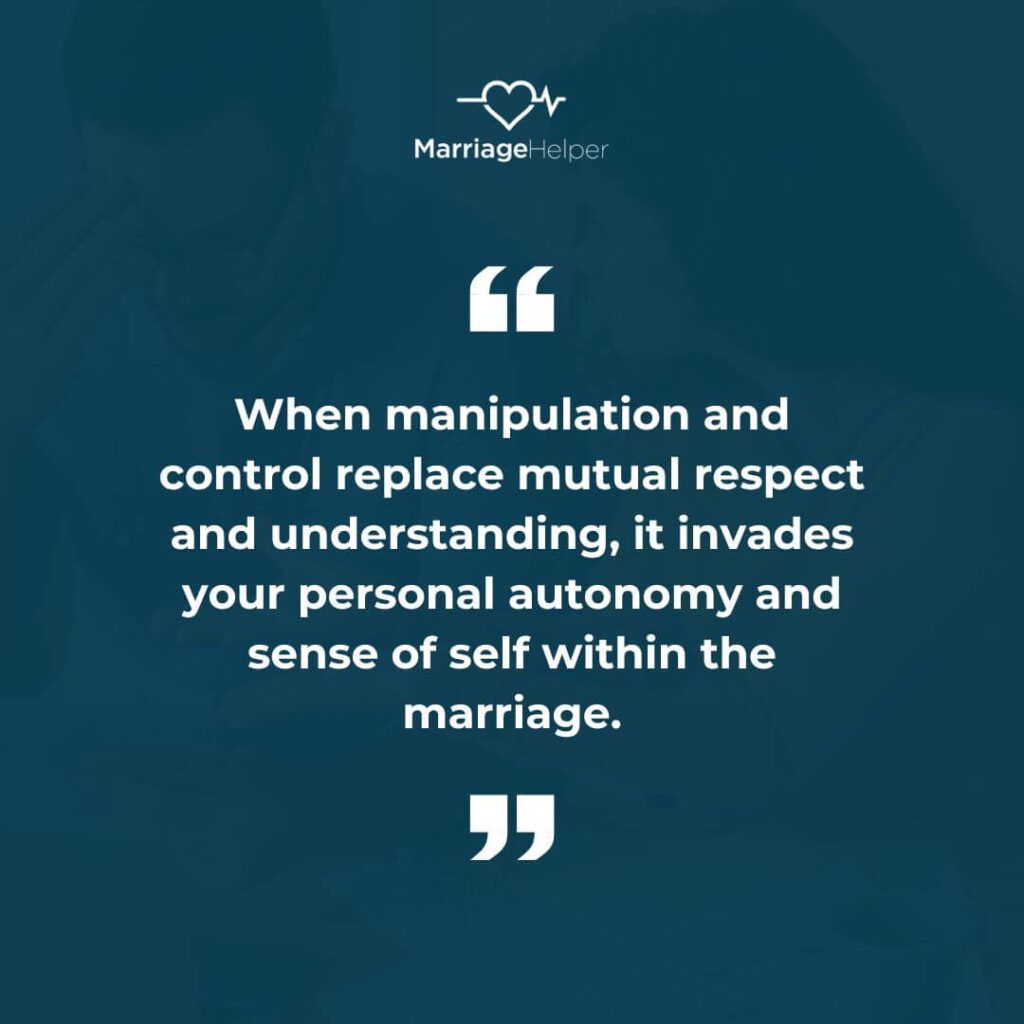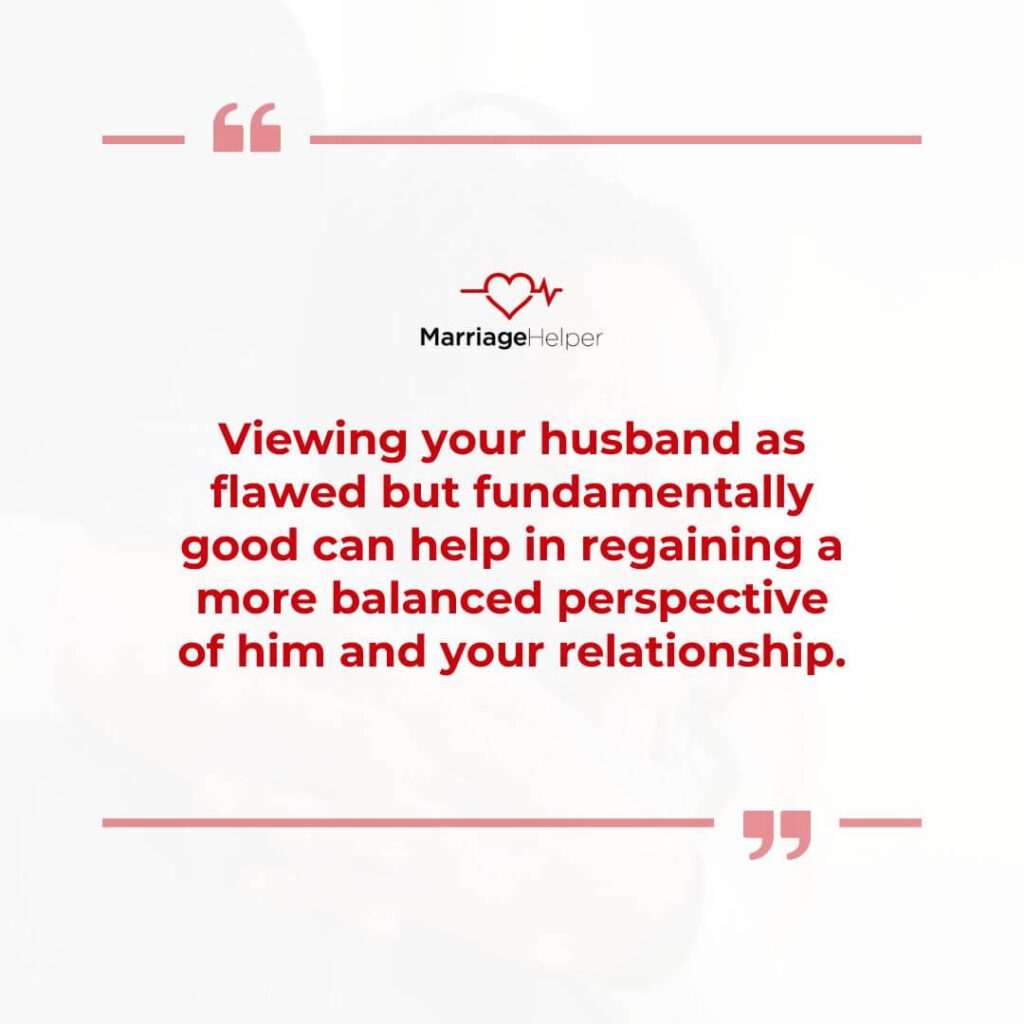
Feeling “turned off” by your husband? Maybe the love and affection you had for them is fading away. Or maybe it’s just gone.
Before you react to these emotions, know that this situation is common. It doesn’t mean that you’re a bad wife but; it means you need some strategies to rekindle aspects of your relationship.
However, if left unaddressed, negative perceptions you have of your husband can lead to resentment. And possibly, to decisions that can affect the entire course of your relationship.
To understand and tackle these challenges, we’ll look into the common causes of why you might be feeling less of the love toward your husband.
We’ll also offer some actionable strategies you can practice to rebuild a healthier connection with your husband.
If you’re interested in more in-depth support, explore Marriage Helper Workshops. Our certified marriage coaches can guide you through the process of managing negative feelings and moving toward a stronger marriage.
Join a Marriage Helper Workshop Session
5 Possible Reasons Why You’re Turned Off By Your Husband
It might surprise you to feel turned off by your own husband. After all, this is your life’s partner.
But these emotions are part of the ebb and flow of normal marriages and they don’t necessarily indicate an insurmountable problem or spell the end of your marriage.
Let’s explore a few possible causes for your shift in perspective.

Unmet Needs and Desires
Feeling turned off by your husband could be due to unmet needs and desires.
Have you ever found yourself asking your husband for emotional support but keep getting sidestepped?
Or maybe you expressed that you want them to help around the house but are met with empty promises?
These experiences can certainly to lead to feelings of neglect, which in turn can cause disconnection and loss of intimacy.
An ongoing disregard for your emotional and physical needs may not only diminish your attraction, but it can also lead to even stronger emotions, like hating your husband.
We’ll offer some solutions below for how to deal with situations like this, but being proactive and not reactive is important to prevent your relationship from further deterioration.
Control and Manipulation
Having a controlling husband can affect the dynamics of your relationship.
You may have once appreciated his decisiveness, but perhaps now you feel that he scrutinizes even your smallest.

When manipulation and control replace mutual respect and understanding, it invades your personal autonomy and sense of self within the marriage.
And this happens more than you might think.
A study from Columbia University found that 68% of the women interviewed experienced some form of controlling behavior from their spouse.
If you notice your husband’s controlling behavior escalating into more destructive or violent acts, prioritize your safety.
If your husband becomes physically violent or verbally abusive, take action now to protect yourself and your children.
Lack of Communication
Good communication is the lifeblood of any strong relationship.
When communication breaks down, misunderstandings and frustrations accumulate.
Lack of open dialogue or unreciprocated attempts to talk about your problems can precipitate negative emotions toward your husband..
This often leads to a sense of loneliness and isolation within your marriage.
You may no longer feel understood or supported by your spouse.
Lack of communication also impacts your emotional bond, making it difficult to maintain the same level of intimacy you once had.
In fact, a recent study revealed (unsurprisingly) that couples with poor communication are more likely to get divorced than couples who have healthy communication.
Laziness
Having a lazy husband can be a significant source of frustration.
Laziness manifests itself in different ways, from small habits to more serious decisions.
For example, your husband may not offer romantic gestures like he used to or contribute to your mutual goals or support your needs and desires.
It’s no wonder that this behavior can result in a decline in respect and attraction.
Over time, this imbalance can gradually erode mutual support and sense of team teamwork in your marriage.
However, your husband may not be lazy on purpose. Sometimes laziness has deeper roots, like intense stress or depression.
While this behavior may turn you off, it doesn’t necessarily warrant blame. Instead, it’s critical to get to the root of why your husband has slacked off so you can troubleshoot potential solutions together.
Infidelity
Infidelity is a serious marital issue that can diminish or even eliminiate your attraction.
Cheating is a clear breach of trust and emotional betrayal.
It directly alters how you view your husband and impacts his role as a partner in your marriage.
The thought of your husband being with another woman is more than enough reason for your attraction to end.
Dealing with the aftermath of infidelity is emotionally exhausting, as it involves navigating a complex mix of feelings like hurt, anger, and confusion.
This creates a deep emotional rift, making it difficult to treat your husband with the same level of affection.
But, at the same time, there is hope for healing your marriage and building an even healthier relationship.
If you’re at your breaking point, consider joining one of our marriage workshops. With a success rate of over 70%, we have the tools, experience, and community to help you get your marriage back on track.
What To Do When Your Husband Turns You Off
Approach the situation with understanding, empathy, and proactive steps when your husband turns you off.
Here are 3 strategies to help you manage these feelings and work towards improving your relationship.
Recognize Your Resentment
The first step in dealing with feelings of being turned off is to acknowledge any resentment that might be building up.
You can begin by journaling your feelings to help identify specific instances or behaviors that contribute to your resentment. This practice can provide clarity on what exactly is turning you off.
Once you have a clearer understanding of your negative thoughts, consider having a candid but compassionate conversation with your husband.
Use “I” statements to express how certain actions or behaviors make you feel, rather than placing blame.
For instance, you might say, “I feel neglected when we don’t spend quality time together,” instead of accusing him of ignoring you.
Reflect on the aspects of your relationship that have led to these feelings, and consider how they have influenced your perception of your partner.
Having a written record of times when your husband’s actions cause negative emotions is also important for equipping any marriage experts you may seek out with context and triggers for your feelings.
View Your Husband as Flawed but Good
It’s important to remember that no one is perfect, and this includes your husband.

Viewing your husband as flawed but fundamentally good can help in regaining a more balanced perspective of him and your relationship.
Try creating a list of his positive qualities and the aspects of your relationship that you cherish.
Take time to remember what caused you to fall in love with him in the first place. Aat Marriage Helper, we refer to the process of falling in love as the love path.
Following the love path and reflecting on what your value about your husband can help you reframe negative feelings.
You can also engage in activities together that remind you of his good qualities, such as a shared hobby or revisiting a place that holds special memories for both of you.
This approach fosters empathy and understanding, helping you to see your husband in a more holistic light, rather than focusing solely on the aspects that turn you off.
Attend a Marriage Workshop
Attending a marriage workshop can be a valuable step in addressing the issues in your relationship.
Prior to attending, set goals for what you both wish to achieve from experience.
During the workshop, actively participate in exercises and discussions and apply the techniques you learn in your daily interactions.

After the workshop, schedule regular check-ins with your husband to discuss the progress you’re making and any ongoing challenges.
This will help ensure that the insights gained from the workshop are being effectively integrated into your relationship.
The best marriage workshops provide a safe space for both partners to explore their feelings, learn new communication skills, and understand each other’s perspectives.
They can provide you and your husband with the tools to rebuild your connection, reignite the spark in your relationship, and work through the issues that are causing you to feel turned off.
No Marriage is Perfect
You and your husband are not perfect beings. And neither is your marriage.
Every relationship goes through its phases of highs and lows.
The key lies in addressing these issues with empathy, understanding, and a willingness to work together toward improvement.
If you find yourself struggling with these feelings and need guidance, Marriage Helper is here to support you.
Our workshops and online membership provide a wealth of resources and expert advice to help you and your spouse navigate through these challenges.
With the right tools and a commitment to growth, you can reignite the spark and strengthen your bond.
We invite you to explore our workshops and join our supportive community to start your journey of healing in your marriage.
WE WANT TO HELP
At Marriage Helper, we’ve walked alongside thousands of couples and spent decades researching what really works to strengthen marriages. Our goal is to provide you with practical, research-backed guidance—like the free information you’ve found on this page—because we genuinely care about helping marriages thrive. If you’re ready to go deeper, our workshops, membership, and one-on-one coaching offer even more tools, insights, and personalized support to help you navigate your unique journey and create lasting change in your relationship.
Our intensive Marriage Helper Workshop has a remarkable 70% success rate in saving marriages, even if your spouse is reluctant or unwilling to participate. And here’s what’s even more encouraging: 99% of participants recommend our program to others, regardless of their ultimate outcome.
Learn more about:

